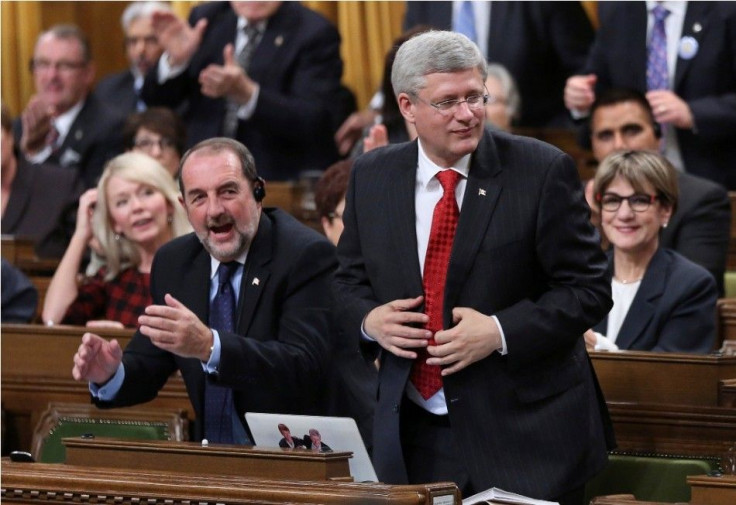Canada’s approach to renewable energy dubbed ‘indifferent’ as huge PR spending on Alberta tar sands is revealed

Canada’s approach to clean energy sector has been described as “indifferent” by a section of energy experts as reports of Stephen Harper’s Conservative government having spent millions of dollars in promoting tar sands, opposed by environmentalists, came to light.
For Canada, the tar sands of the western province of Alberta have been a controversial issue despite their value as a major source of revenue for the country. The tar sands were being opposed by environmentalists for contributing to high carbon dioxide emissions, the reports added.
A report in The Guardian noted that Canada's Conservative government spent millions of taxpayer dollars on advocacy for tar sands development projects. The PR campaigns were unleashed to expand support for tar sands that employ crude oil extraction methods like fracking.
According to documents obtained via freedom of information request, Prime Minister Harper's Conservative government spent at least US$4.5 million (AU$6.1 million) in 2013 on positive PR initiatives for the tar sands, both nationally and internationally. But the Canadian public was not aware of such spending.
Positive PR
The PR funding was done mainly to create positive PR spins for the proposed pipelines, condemned by environmentalists and opposed by the public for the damage the project may pose to the environment and first nations territories. According to the report, the PR outreach efforts included “advance energy literacy among BC First Nations communities,” after communities voiced opposition to the construction of pipelines of Northern Gateway and Kinder Morgan through their territories.
Construction plans for both the pipelines have since been shelved. Canada also extended funding for researching and supporting Canadian lobbying against the European environmental legislation, EU Fuel Quality Directive, which Canada suspected as hampering tar sands exports to Europe and wanted to overcome the hurdle by “advancing knowledge” about extraction methods such as fracking. Fracking is often criticised for its environmental impacts, including contamination of groundwater, air and noise pollution.
Keystone XL pipeline
It has also come to lime light that the Canadian government spent US$24 million (AU$32.5 million) towards advertisements in the U.S. and Asia to promote the Keystone XL pipeline that runs into the United States. Its fourth phase has not been allowed by the U.S administration because of alleged environmental impacts. The news reports on tar sands promotion have prompted Canada's clean energy industry to complain that Mr Harper's focus is more on tar sands and fracking and the same zeal is not permeating into other energy sectors.
Merran Smith, Executive Director of Clean Energy Canada even described Harper's stance towards renewables as “indifferent.” She also flayed the federal government for not promoting investment in clean energy – despite the interest shown by U.S. investors in the sector, including Bill Gates, who pledged big investment in the renewable energy sector.
(For feedback/comments, contact the writer at feedback@ibtimes.com.au or let us know what you think below)





















